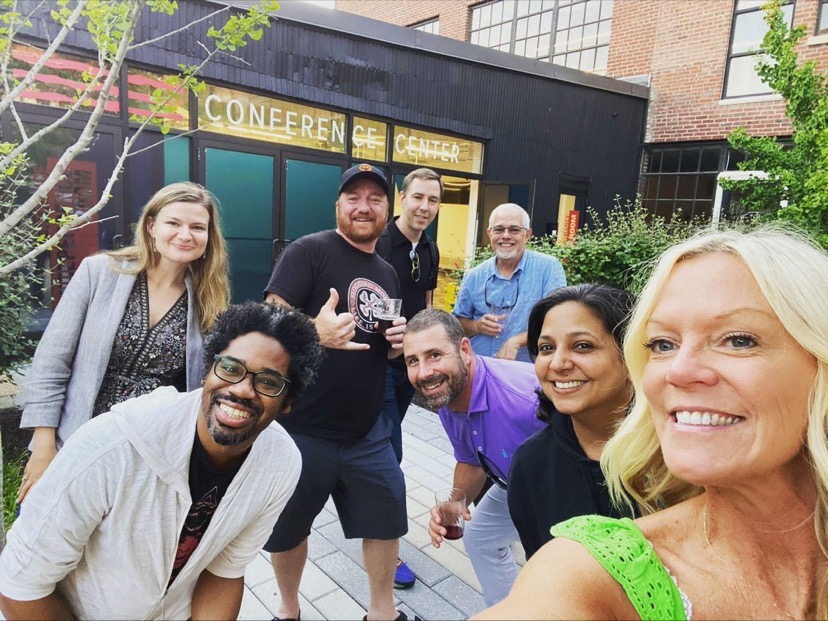Whether a company was founded in 1994, 2004 or 2014, 20% of businesses fail in the first year. By the fifth year, generally, 50% of businesses have shut their doors; Only 33% of companies make it to the end of a decade, according to data from the U.S. Bureau of Labor Statistics.
Mindgrub is still going strong in the face of these statistics, from humble beginnings in CEO Todd Marks’ basement to going fully remote and embracing the metaverse. In the next five years, the CEO of the software and marketing consultancy plans to go even bigger as he looks at a roadmap to go public.
“I founded the company in my basement in 2002,” Marks told Technical.ly about the recent milestone. But the company didn’t take off until the release of the iPhone in 2008, with a few false starts centered around a Windows mobile platform. “That is when I started aggressively hiring to build up a mobile team so that we could support both web and mobile.”
“Yes, we hit 20 years, but I almost feel like it’s more like 14 years,” he added. “I hired my first employee in 2008, but the company I founded in 2002 was [just] myself for the longest time.”
Now, the next milestone is on the horizon: the initial public offering, or IPO, through which many million-dollar companies scale to billion-dollar ones.
Mindgrub’s IPO roadmap currently looks like acquiring about a half-dozen companies over the next two years, as well as taking on private equity in year three before going public in year five.
All of this stems from the pragmatic thought process of a CEO that’s been building Mindgrub for 20 years. Going public is about the money.
Marks has always preferred the control that not being beholden to a board of directors and investors allows. When those investors want three- to seven-times the returns, it becomes about the bottom line and not the product. That said, he sees how Mindgrub has grown and the world has flattened during the pandemic. Mindgrub is now competing with companies in New York and San Franciso that have taken in a lot of capital.
“We’re realizing that we might be undercapitalized to compete at an international level,” Marks said. “Maybe it’s about time that we scale Mindgrub nationally, internationally. We take on capital and we know there’s going to be a return for those investors — and we’re OK with that.”
Drawing more on his over 20 years of scaling and bootstrapping a company, here are some of the insights and advice Marks can offer from throughout his career:
- Three things you need to go into business are experience, a need and disruption.
- For Mindgrub, he counts “experience” as the time between graduating college in 1998 and Mindgrub taking off in 2008. He worked at Deloitte, the University of Maryland, Baltimore County and the Department of Defense (and had the company go through multiple iterations during that time).
- The need was his desire to stay in Baltimore, as well as to afford and be available to raise his family of now seven kids.
- The disruption was the rise of mobile apps in 2008, which he said, “14 years later, are still as strong as they’ve ever been.”
- “I would say it’s more of the formula that you need and then, if you get that right formula, then you can ride the wave, which is what we’ve been doing since 2008.”
- “We’ve always had a vibrant startup culture [in Baltmore], but what we haven’t had is a good ecosystem to scale businesses. But now I’d say, 20 years later, that ecosystem is getting really filled out in a couple ways.”
- “You’re starting to now see companies go A, B, C, D, E and get that institutional funding. That’s because a lot of these early startups, like a Millennial Media and Advertising.com, they’ve had exits and now there’s capital going back into the ecosystem.”







